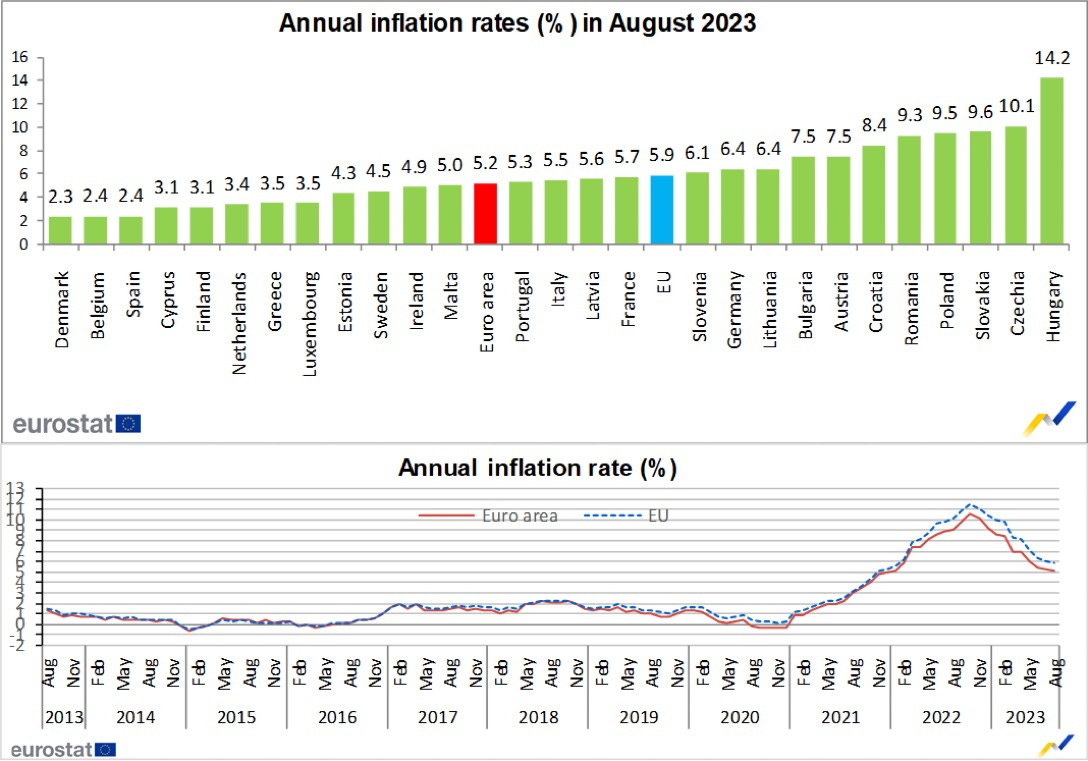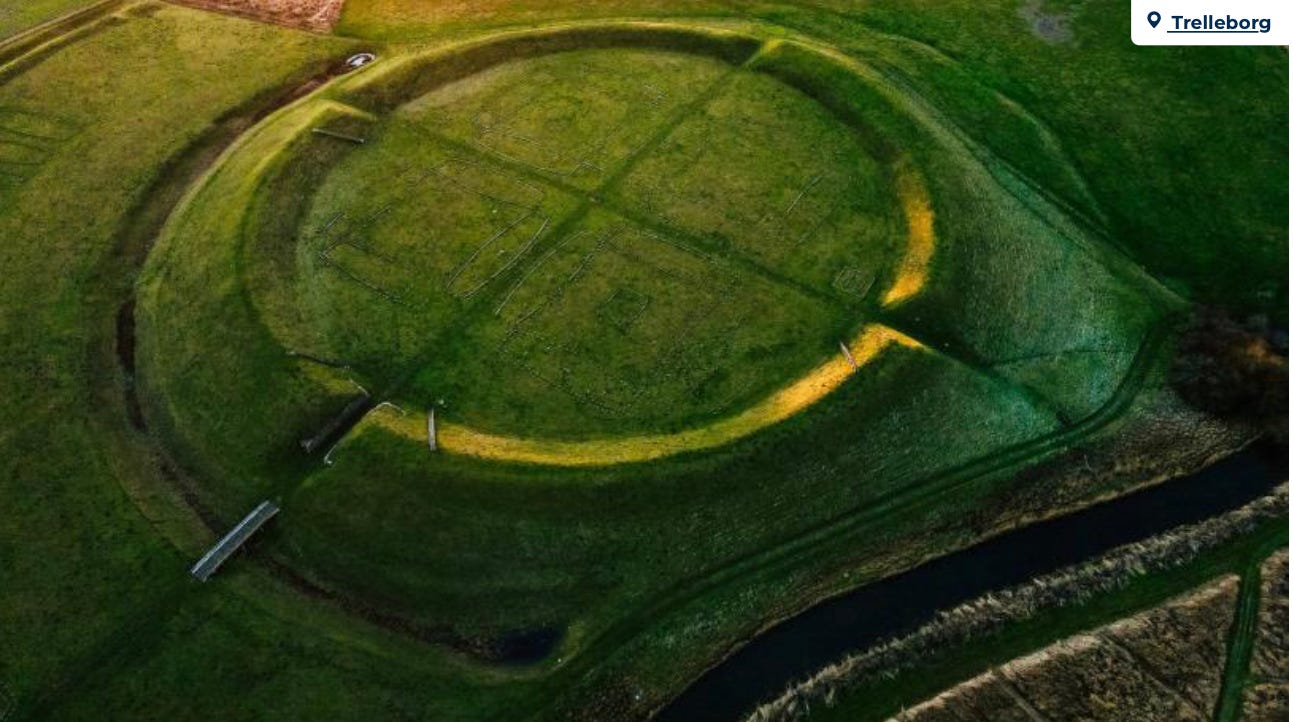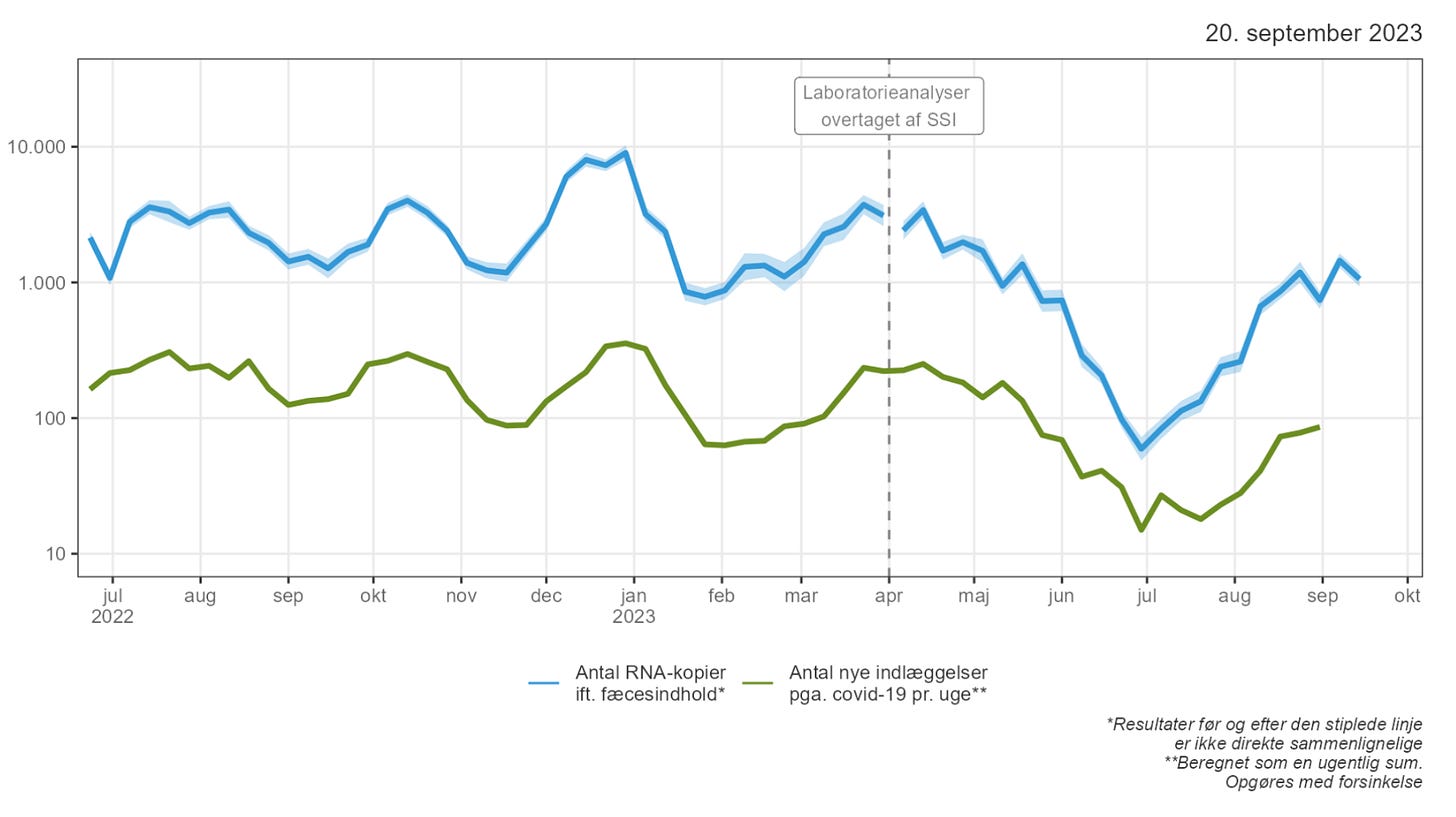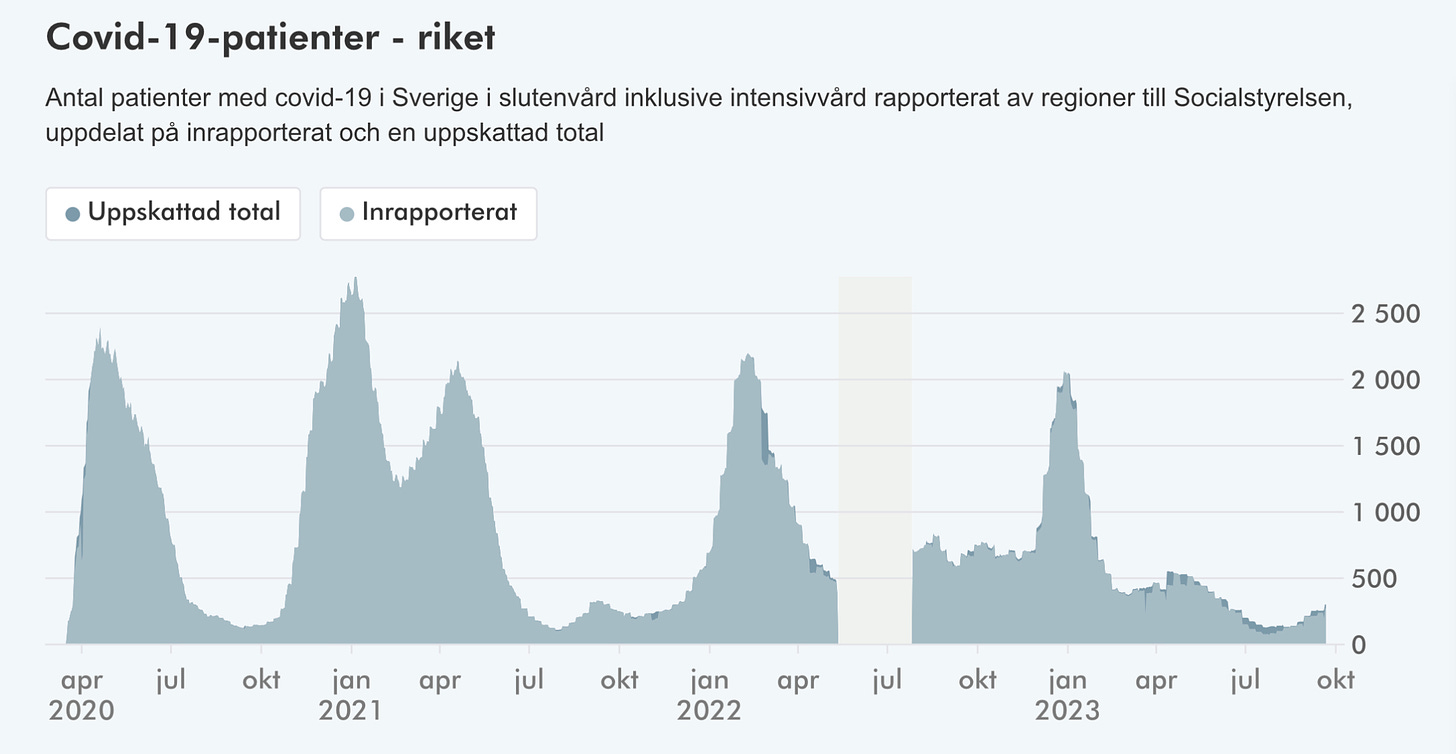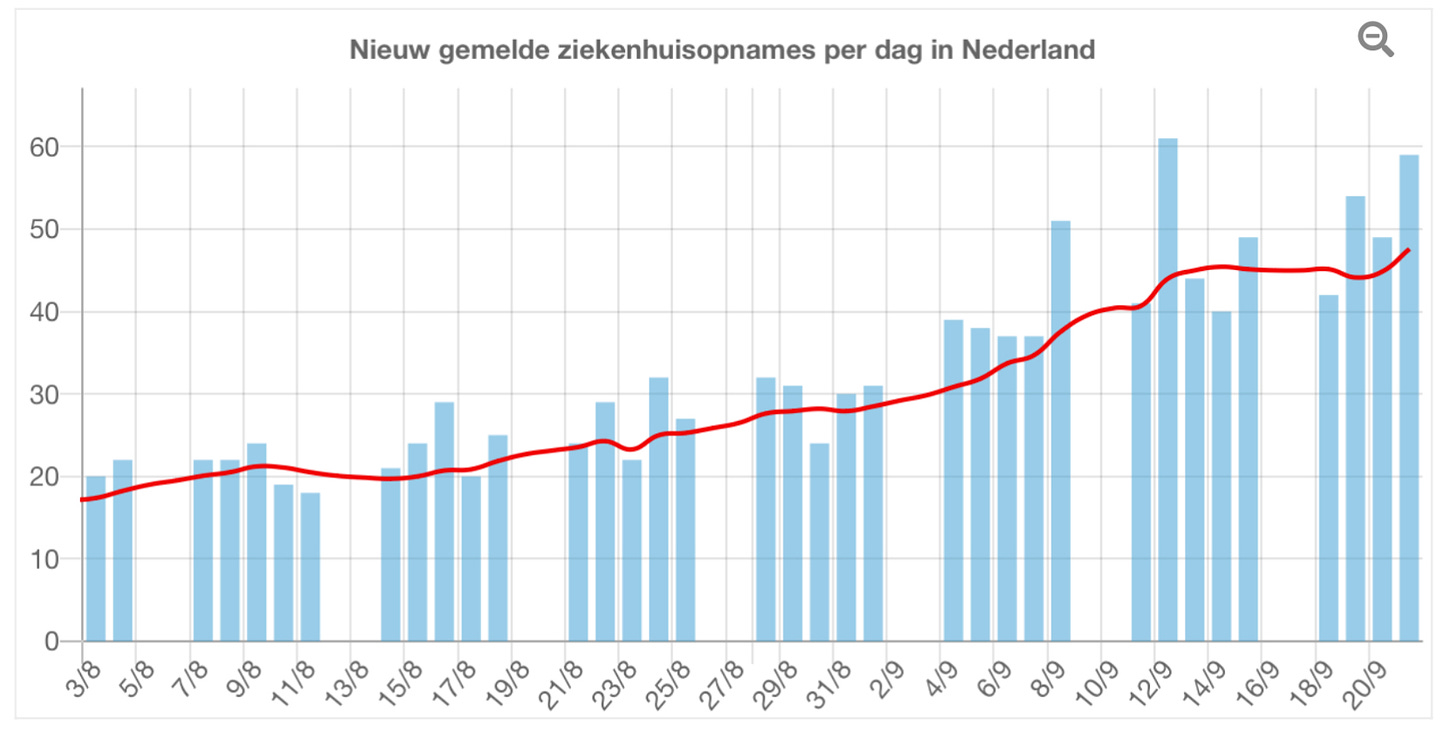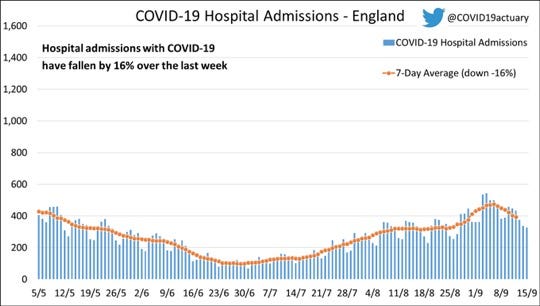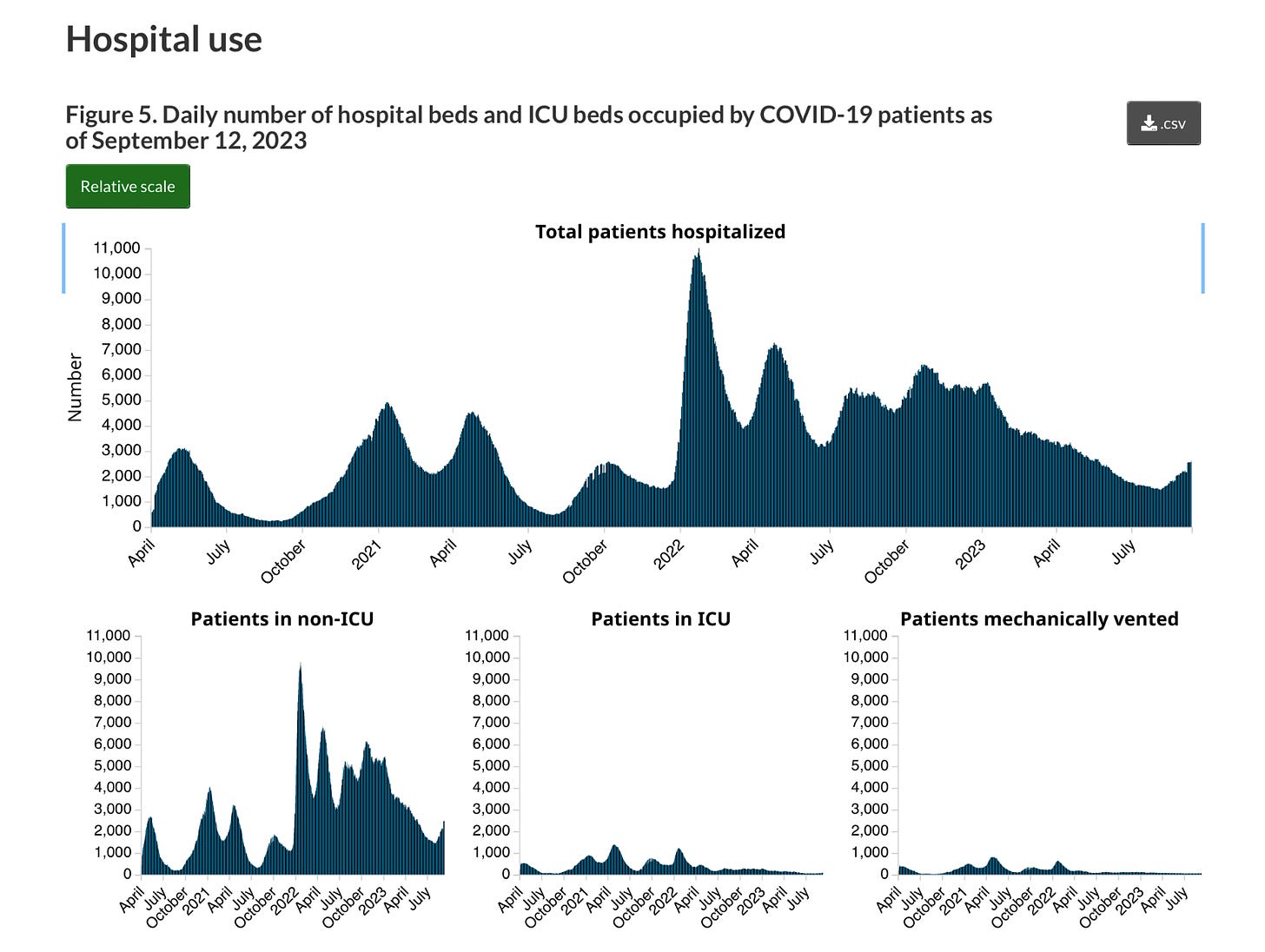🍃Environment & Energy⚡️
🇪🇺
One out of every five new cars sold in the European Union last month was electric. EV sales made up a record 21% of total car sales in Europe in August.
In a press release, the CEO of Danske Bilimportører (Danish Car Importer) Mads Rørvig says these numbers will only continue to rise.
“It is gratifying that electric cars are gaining ground in the EU. Electric cars now make up a fifth of sales in the EU, and this share will only increase.”
Plug-in hybrid vehicle sales accounted for a further 7.4% of the market share. That means three out of every ten vehicles sold in Europe last month were rechargeable.
🚙 ⚡️
Volkswagen is saying goodbye to diesel vehicles. The company has announced that it will stop making diesel cars by the beginning of 2024. The iconic car maker has set a goal of ending the production of all fossil fuel-run vehicles and instead manufacturing entirely electric vehicles by 2030. It is also working toward becoming completely carbon-neutral by 2040.
🇩🇰
If the Danish island of Fyn is any indicator 2023 could be a banner year for electric vehicle sales in Denmark. At the beginning of the year electric vehicles and plug-in hybrids made up almost 7% of all car sales nationally according to Statistics Denmark.
Danish media outlet Fyens Stiftstidende is reporting that on Fyn for the first time ever electric vehicle sales over the last year have surpassed that of fossil fuel vehicles. Since August of 2022 people on the island, home to Denmark’s 3rd largest city Odense, have bought 3,146 EVs, that is 18 more electric vehicle sales than those running on gas or diesel. Going back five years the total share of EV sales on Fyn according to bilstatistik.dk has shot up from 1.3% to 32.5%.
Experts point to a robust network of charging stations across Fyn as one possible factor in the explosion of EV sales. Another factor could be a significant price drop for new Teslas at the beginning of the year, which triggered price adjustments for their competitors selling EVs.
🇷🇺
The Russian government is scrambling to keep a gas and diesel shortage from exploding into a full-blown crisis. Russia has temporarily restricted all gas and diesel exports with the hopes that will address nationwide shortages. However, they have not put any actual specifics on how the export ban will work.
Fuel shortages are becoming acute in Russia, especially in some of its more significant agricultural areas where gas and diesel shortages are putting the ability to harvest crops at risk.
The move has sent European wholesale diesel prices up by about 5%.
🇸🇪
Levels of PFAS chemicals exceeding safety limits have been found in Swedish crayfish. A company called Eurofin has been testing crayfish on behalf of the Swedish environmental organization Naturskyddsföreningen. It found that four out of every seven crayfish had PFAS levels exceeding safety limits set by the EU.
Naturskyddsföreningen Secretary General Karin Lexén spoke to NRK:
“This indicates that there are disturbingly high levels of PFAS in Swedish waterways and that this is being spread via crayfish to us consumers.”
Concern has been rising in the Nordic countries over PFAS chemical pollution. pFAS are man-made chemicals used in things like non-stick cookware, stain-resistant fabrics, some cosmetics, firefighting foam, and other products. The chemicals resist grease, water, and oil and do not break down naturally in the environment. This has earned PFAS the nickname the forever chemicals.
🇩🇰 🍃
A majority of Danish political parties have reached a deal on the capture and storage of CO2. 26.8 billion Danish kroner (about $5.1 billion Cdn) has been set aside to find the plan over a 15-year period. It has the goal of capturing and storing 34 million tonnes of CO2 over the deal’s term.
Minister for Climate, Energy and Supply Lars Aagaard:
“Fortunately, we have companies that want to invest but are currently held back by a number of uncertainties and barriers. It is my task to minimize both risks and uncertainties on the way to 2030. This is exactly what we are doing by strengthening the conditions for carbon capture and storage in Denmark.”
Companies will be able to bid on carbon capture and storage contracts but they must have a plan for the capturing, transportation, and storage of CO2 emissions before placing a bid. The first of two tender rounds will take place in June of next year.
But Professor of Energy Planning Brian Vad Mathiesen, speaking to DR, warns there are challenges ahead.
“This applies, for example, to cement production, where chemical processes cause emissions to occur. We also have some waste incineration plants, and even if we minimize our waste production, there will still be large emissions there. My view is that the politicians have now done their job, and now it is up to the technology and the actors to deliver.”
-
One Danish region is targeting asthma inhalers as a way to reduce greenhouse gas emissions. The inhalers use aerosol as a propellant so the person using it can get their medication. That propellant contributes to CO2 emissions. Region Syddanmark has received a 2 million kroner grant (about $385,000 Cdn) to investigate if people using aerosol inhalers can switch to dry powder inhalers and still receive the medication they need while also reducing CO2 emissions.
If the project proves to be a success and doesn’t infringe on the quality of care a person is receiving then the more environmentally friendly dry powder inhalers will be implemented across the region.
Aerosol inhalers account for about 3% of the region’s total greenhouse gas emissions.
-
Danish farmers are getting some drought relief funds from the European Union Commission. 47 million kroner (about $9 million Cdn) in fiscal aid will be doled out.
Minister for Food, Agriculture, and Fisheries Jacob Jensen:
“Danish farmers have been through a tough summer, first with extraordinary drought and then with a very wet July, which has made things extremely difficult for farmers.”
The fund are earmarked specifically for farmers who suffered financial losses due to weather conditions.
🇫🇮
The Finnish government is planning on scrapping legal mandates that municipalities have to have climate plans. The government under previous Prime Minister Sanna Marin required municipalities to have specific CO2 emission targets and detail exactly how they planned to reach those goals. By eliminating the requirement the current Finnish government hopes to save €2.8 million annually. This as it tables a preliminary budget that includes cutting the environment and nature protection budget by 36%, or roughly €70 million.
Legislation scrapping the municipal climate obligations could be tabled by next year.
🇬🇧
British Prime Minister Rishi Sunak has announced that Great Britain is significantly pushing back some of its goalposts in the fight against climate change. Britain remains one of the biggest greenhouse gas emitters in Europe.
In November of 2020, Great Britain set the goal of phasing out fossil fuel vehicles by 2030. That is now changing according to the Prime Minister.
“We will facilitate the transition to electric cars. But it will still be possible to buy petrol and diesel cars in 2030, and after that, it will still be possible to buy and sell them used.”
Also getting pushed back is the phasing out of oil and gas boilers, which was to be accomplished by 2035. Now that goal has been discarded as Sunak calls it “unfair to consumers” who he says shouldn’t be forced to make the switch to a heat pump.
The British government is also trashing a requirement that all rental properties become energy efficient.
🇩🇰 ☀️
September could turn out to be the hottest month of the entire year in Denmark. So far this month the average temperature is sitting at 16.8 degrees. In June, July, and August the average temperature was 16.1 degrees. The hottest day of the month was September 9 when it hit 28.5 degrees.
With less than two weeks remaining in the month, there is a good chance this could also become the warmest September on record. The current September heat record is 16.2 degrees, which was set in 1999 and then matched in 2006 and 2016.
🇸🇪 ❄️
Snow not only fell incredibly early in a northern Swedish city but it also fell in record-setting amounts. On Wednesday morning 38 centimeters of snow fell in Kiruna according to the Swedish weather service SMHI. The previous record snowfall for September in the city was 21 centimeters set way back in 1932.
🇬🇱
Greenland’s ice sheet has never been warmer than it was this summer. The Danish Meteorological Institute’s Summit Research Station is there and it recorded an average of -7.3 degrees in July, which doesn’t sound like a heat record but the previous record was -9.2 degrees. DMI says temperatures also just missed setting a new heat record in August. It attributes the exceptionally warm weather in one of the coldest places on earth to an unusually high number of large high and low-pressure fronts that have been responsible for unprecedented weather around the globe.
🇩🇰🇪🇺
Last month, Denmark had the lowest inflation rate (2.3%) among Eurozone countries. Nordic neighbours Finland (3.1%) and Sweden (4.5%) were also under the Euro Area and EU average inflation rate. On the other end of the scale, Hungary continues to have the highest inflation (14.2%) in all of Europe.
From July to August inflation fell in 15 EU member nations, was static in one, and rose in the remaining 11.
For context, last August, average inflation in the Euro Area was 9.1% and in the EU it was 10.1%.
🇩🇰
Five Viking ring fortresses spread across Denmark have been officially added to the list of UNESCO World Heritage Sites. The ring forts are Aggersborg, Fyrkat, Nonnebakken, Borgring, and Trelleborg.
Director of the National Museum of Denmark Rane Willerslev:
“The Viking age holds a unique place in world history, and the Ring Fortresses are a physical manifestation from the time when Denmark was united as one kingdom and Scandinavia became a part of the Christian movement in Europe. Therefore, it is amazing, and with a good reason, that the Danish Ring Fortresses are now recognized by UNESCO as world heritage sites at the same level as, for instance, the Pyramids and the Great Wall of China. This decision will support the future research and communication about the Ring Fortresses and hopefully, it will also contribute to attracting more visitors.”
Being named a UNESCO World Heritage Site often means an influx of tourists so the five Danish municipalities that house the ring forts are going to the government hat in hand. They are asking for 62.5 million Danish kroner (about $12 million Cdn) to address a potential influx of tourists. The money would go to, among other things, building visitor centers.
🦠COVID🦠
🇪🇺🦠
For the first time in many months, the European Medicines Agency and the EU Centre for Disease Prevention and Control held a press conference about COVID on Thursday. The two agencies are warning people to get vaccinated and do everything they can to minimize their risk ahead of what they anticipate will be another major winter wave of respiratory infections.
ECDC Director Andrea Ammon:
“We will soon see the arrival of autumn and winter, where we anticipate a resurgence of seasonal influenza and RS virus. We also see increases in COVID transmission in the EU and the greater European Economic Area. We anticipate the viruses will co-circulate in the coming months.”
Ammon says the rising number of coronavirus infections is likely due to the return to normal especially where it concerns increases in international travel and having large gatherings. Another factor she says is waning immunity after a long period between booster doses and months of very low infection activity. Ammon warns that all these circulating respiratory viruses put seniors and vulnerable populations at high risk of severe infections resulting in hospitalization and death. It will also increase pressure on healthcare systems again.
The ECDC says people need to act now to protect themselves. This includes getting vaccinated for those eligible for another booster dose, using masks and other personal protective measures, and for national health agencies to ramp up virus surveillance and testing.
“The seasonal circulation of respiratory viruses comes every year. It may be more or less severe, and it may start earlier or later during the winter. We cannot afford to be complacent. By taking necessary steps, we can prepare ourselves at the EU and national levels.”
EMA Director Emer Cooke:
“The good news is that we are much better prepared than in the past years as effective vaccines and treatments are available to protect European citizens. We have two adapted safe and effective mRNA COVID vaccines for adults and children offering good protection against a wide range of the currently circulating strains.”
Cooke stresses that unlike last winter Europe now has two approved RS virus vaccines to protect vulnerable seniors, newborns, and infants.
“COVID, influenza, and RSV remain significant public health challenges. People who belong to risk categories and who are vulnerable should get vaccinated. Vaccination is the most effective way to prevent infections and protect from severe disease and hospitalization.”
🇩🇰
COVID wastewater surveillance shows that there was a slightly lower amount of virus activity across Denmark last week (blue line). However the average growth rate over the last three weeks continues to show an overall increase in coronavirus activity.
Infection-related hospital admissions (green line) continued to creep upward last week.
-
As of yesterday (Wednesday), people in high-risk or vulnerable groups in Denmark can now book a COVID booster dose vaccination. Appointments can be booked via www.vacciner.dk. People in these groups are NOT getting a vaccination invitation via their eboks and instead must make an appointment on their own.
Acting Unit Head Kirstine Moll Harboe:
“You will not receive an invitation letter from the Danish Health Authority if you are under 65 and at increased risk of a serious course of influenza and or COVID Instead, you must go to vacciner.dk, where you can read more about the vaccination requirements and book a vaccine appointment, where and when it suits you best.”
If you are eligible for a booster dose you will have to fill out a declaration form saying that you meet the requirements and need to be vaccinated.
The Danish National Health Board defines someone as being in a vulnerable or high-risk population as:
Those struggling with chronic illness including lung and cardiovascular disease.
People with Diabetes 1 or 2
People who have immunodeficiency including those being treated for cancer or who have had an organ transplant.
Those with chronic liver or kidney diseases
People with serious rheumatological disease or other illnesses making them high risk for influenza or COVID infections.
Those suffering from neurological disease or short bowel syndrome.
People who are severely overweight (BMI>35).
People with severe mental illnesses, Down syndrome, or acute substance abuse problems.
Pregnant women in the 2nd or 3rd trimester.
Anyone living with an adult or a child who meets any of the above categories.
Influenza vaccinations can be administered at the same time as the COVID booster.
A little patience is also being urged as people book vaccination appointments.
“Not all vaccination sites have posted times yet. If you cannot find a vaccination site nearby, it is a good idea to arm yourself with a little patience, as pharmacies and vaccination sites will continuously post new times, so if there is no time today, check again in a few days.”
🇸🇪
COVID hospitalizations in Sweden (275) continue to rise (+35) while the number of severely infected people in an ICU (8) also crept upward (+3).
-
The Swedish Public Health Agency is recommending that seniors 75 years old and older and those over 60 in “certain risk groups” be vaccinated against the RS virus. High-risk groups include people with chronic lung, heart, or vascular diseases, those with diabetes, people who are immunocompromised due to disease or organ transplant, and those who have liver or kidney failure.
Two RSV vaccines have been approved for use in Europe.
Deputy Unit Head Johanna Rubin says the agency has determined that there is a significantly increased risk this winter of severe RS virus infections that could lead to hospitalization or death for elderly seniors.
“We know that the RSV vaccines approved for the elderly provide good protection. Against the background of the significantly increased risk of severe RSV infections and the chances of hospitalization and death as a result, the Public Health Agency now recommends that people who are 75 years of age or older be offered vaccination.”
With the public health authority making the recommendation the ball now moves to the various Swedish regions. They will have to decide if they are going to include the RSV vaccine in their inoculation efforts and if so then tackle all the required logistics.
🇳🇱
Infection-related hospital admissions in the Netherlands continue to increase.
🇬🇧
COVID hospitalizations in England fell by 16% week to week according to the COVID Actuaries Response Group. The declines were seen across every region, which includes a 22% drop in London.
Intensive care occupancy also dropped by 8%.
The reinfection rate, or R0, also declined to 0.90. Anything over 1 indicates degrees of a spreading epidemic.
🇨🇭
Swiss health authorities say that the latest round of COVID wastewater surveillance testing has shown BA.2.86 variant activity in most of the treatment plants around Switzerland where testing was conducted.
WHO/ 🇨🇳
The World Health Organization is again calling on China to be transparent about the origins of the coronavirus that triggered a global pandemic. This is not the first time the WHO has tried to pressure China into cooperating with investigations into the origins of COVID.
Director-General Tedros Adhanom Ghebreyesus:
“We are pressuring China to grant full access, and we are asking countries to raise the issue during their bilateral meetings, to encourage Beijing to cooperate.”
He says if and when China wants to cooperate a WHO team is standing by to begin an investigation on Chinese soil.
🇺🇸
As COVID numbers climb in the United States the federal government has announced it will relaunch a program providing free home COVID testing kits. People in the States can order up to four free test kits at covidtests.gov starting September 25.
The program shipped more than 755 million free testing kits before it was suspended last May.
🇨🇦
COVID hospitalizations continued to rise across Canada. In the week ending September 12, the total number of hospital beds in use by a coronavirus patient increased by 450 to 2,615. General admissions covered the bulk of the increase with 2,524 admissions, 424 more than the week before. There were 91 infected people requiring intensive care, which is an increase of 26. Only the number of severely infected people on a ventilator decreased but only by one going from 58 to 57 from one week to the next.
The Public Health Agency of Canada says coronavirus indicators are rising including the positivity percentage, which is now 15.9% and has been steadily increasing since early July.
🇺🇦/ 🇷🇺 War
🇪🇺🇩🇰 NATO
The desperate need for more ammunition both in Ukraine and across Europe was the big topic on the table when Defense Ministers from NATO member states met in Germany this week.
In Norway last week the country’s Chief of Defense told Norwegian newspaper VG that NATO’s ammunition stores are alarmingly low. Compounding the problem is that while European countries dig deep into their ammunition stores to feed Ukraine’s never-ending urgent needs, ammunition production capacity is nowhere close to meeting the demand. This means costs are rising for ammunition as it becomes a suddenly scarce and in high-demand commodity.
NATO Military Committee Chair Rob Bauer:
“The volume of ammunition that Ukraine needs is huge. The scale of what is being used exceeds our production capacity. Right now we are paying more and more for exactly the same thing. This means that we cannot be sure that the increased spending on defense will actually lead to more security.”
In Denmark, Defense Minister Troels Lund Poulsen says that talks are underway for the Danish government to buy back an ammunition factory in Northern Jutland. The factory, which was the last ammunition production facility in Denmark, closed its doors in 2020. Poulsen says he is hoping to have some clarification within a month about whether a deal can be reached or not.
🇩🇰 🇺🇦
Last week, Denmark tabled its largest financial donation for weapons to Ukraine to date. This week we are learning what all that money is going to buy. Danish Defense Minister Troels Lund Poulsen said in cooperation with the Netherlands and the Czech Republic they will send 15 modernized T-72 tanks to Ukraine along with a large amount of ammunition.
“It is a very comprehensive donation package that Denmark plans to contribute. The 5.8 billion kroner will go to, among other things, a donation of 15 modernized T-72 tanks, which Ukrainians already have much experience using. Therefore the Ukrainians can use the tanks in their battle against the invasion in very short order.”
The cooperation agreement between the three countries could also be extended to include other types of weapons, ammunition, and military equipment.
In addition to that, Denmark will work with Germany to donate 30 more Leopard 1 tanks to Ukraine. This is in addition to the 80 Leopard 1 tanks the two countries are already sending. Denmark and Germany also plan to jointly finance the production of a large amount of tank ammunition.
Denmark is also planning to help finance a maintenance center to repair and maintain Leopard tanks already donated to Ukraine.
“I am proud that there is still broad support among the parties in the Danish Parliament for supporting Ukraine. It is absolutely essential that we continue to support the Ukrainians with heavy equipment and ammunition. With the planned donations, Denmark and our allies show that we stand together in support of the Ukrainian struggle and that we are prepared to support Ukraine in the long run.”
Denmark also plans to use the money allocated for Ukraine to donate a number of other weapons, ammunition, and equipment from its military stocks. This includes things like hand grenades, pistols, grenade launchers, camouflage netting, and other supplies.
The donations package still requires the approval of the Danish Finance Committee’s approval.
-
While the first four next-generation F-35 fighter jets arrived on Danish soil for the first time last week it could be a while before any more follow suit. Lockheed Martin has delayed the next shipment of F-35s by half a year, until the end of 2024 at the earliest. Danish Defense Minister Troels Lund Poulsen says they are exploring the option of borrowing F-35s from the United States to stay on schedule. The idea is to use American F-35s for training Danish pilots in Arizona and then sending the six Danish F-35s currently filling that role from the U.S. to Denmark.
At the moment, Denmark has ordered 27 of the next generation combat aircraft but there are some discussions to increase the number of F-35s on order.
-
Danish military instructors working on the international training program in the United Kingdom have said goodbye to their latest batch of Ukrainian troops. The Ukrainians participated in shooting drills to finish their hyper-intensive six-week training course. The soldiers then spent the last day maintaining their new kit, participating in a field service, and then departing in a closing parade.
🇩🇰 🇪🇪 🇱🇺 🇺🇦
Denmark, Estonia, and Luxembourg have signed a declaration of intent to work together to provide support for Ukrainian armed forces where it concerns cyber defense and communications technology.
Denmark has already been active in supporting Ukraine against Russian cyber attacks by, among other things, donating software and expertise. Estonia has established itself as a cyber-security leader in Europe.
🇸🇪
Sweden has delivered ten Stridsvagn 122 tanks, the Swedish equivalent of the Leopard 2, to Ukrainian forces according to Sweden’s Ministry of Defense.
🇳🇴 🇫🇮
The next-generation F-35 fighter jets have demonstrated a significant strategic advantage after successfully landing and taking off on highways in Finland and Norway this week. The ‘hot pit refueling’ drills were carried out with the jets landing on a roadway, refueling while their engines were still running, and then taking off again. This makes them more elusive as enemy targets instead of being chained to specific Air Force bases. It also expands their reach as long as fuel and ammunition are in place along the roadway.
Norwegian Air Force Chief Major General Rolf Folland:
“The aim of the dispersion concept is to make it more challenging for an enemy to take out our aircraft when they have to be on the ground. If such a concept is to work, we must map out all possibilities. This is a milestone, not only for the Air Force but also for the Nordic countries and NATO. This shows our ability to adopt a spread concept. Fighter planes are vulnerable on the ground, so by being able to use small airfields, and now also motorways, we increase survivability in war. In addition, this is also a demonstration of the exciting development we have initiated within air-military cooperation in the Nordic region.”
While F-35s have completed roadway hot pit refueling in the United States this marks the first time an F-35 has landed on a highway in the Nordics, refueled, and taken off again.
🇳🇴
Norway will donate around 50 M548 tracked all-terrain vehicles to Ukraine. The vehicles can be used to transport food, water, ammunition, and other supplies to troops in areas inaccessible by wheeled vehicles.
The donated vehicles will be pulled from military storage in Norway, refurbished, and then sent to Ukraine.
🇩🇪 🇺🇦
Germany is sending another weapons package to Ukraine. The donation includes ammunition, armoured vehicles, mine clearing systems, power generators, and other items. It is valued at about €400 million. German Defense Minister Boris Pistorius announced the latest donation.
Pistorius didn’t attend the NATO defense ministers’ meeting this week in his own country due to contracting COVID.
🇩🇰 NATO
Two Danish frigates recently took part in NATO exercises in the North Atlantic and Baltic seas along with 12 other alliance member nations. The frigates Niels Juel and Peter Willemoes participated in a number of training exercises including on repelling a simulated attack by smaller fast-moving boats.
🇸🇪 🇹🇷
Turkish President Recep Tayyip Erdogan has been sticking to form agreeing to support Sweden’s NATO application, again, last summer and then almost immediately throwing the whole thing in doubt. Erdogan recently tried, and failed, to use Turkey’s veto power over Sweden’s NATO bid to try and get Turkey into the European Union. Amid all the bluster from Turkey, NATO Secretary General Jens Stoltenberg struck an everything is on track tone after meeting the Turkish President at the UN General Assembly this week.
Stoltenberg took to his social media platforms to say that Turkey will support Sweden’s application as soon as possible.
“Happy to meet President Recep Tayyip Erdogan in New York. We discussed stepping up our fight against terrorism, and I thanked him for Turkey's efforts in reviving the Black Sea Grain Agreement. As agreed in Vilnius, the Turkish parliament will take up Sweden's NATO membership as soon as possible.”
Sweden’s NATO application still needs to be ratified by the Turkish and Hungarian parliaments in order for it to become a full alliance member.
🇸🇰 🇵🇱 🇭🇺/ 🇪🇺🇺🇦
A big chunk of the world is anxious to get shipments of Ukrainian grain out of the war-torn country but some of Ukraine’s nearby European neighbours are not among them. For several months now the EU has banned the import of Ukrainian grain due to concerns about the impact on local European farmers and grain markets. Recently the European Commission lifted the ban but Poland, Slovakia, and Hungary all quickly announced their own restrictions. However Slovakia rescinded its ban a few days later and complied with the EU after engaging in talks with Ukraine.
While addressing the United Nations in New York Ukrainian President Volodymyr Zelenskyy called out allies who have initiated bans on Ukrainian grain exports. While never singling out any one country by name Zelenskyy accused countries that are instituting bans of helping Russia. Ukraine has also filed a WTO complaint against Poland and Hungary.
Poland is none too happy about all this and has summoned the Ukrainian Ambassador over the comments made by Zelenskyy. And then on Thursday Poland’s Prime Minister threatened to end all arms donations to Ukraine. Poland has been one of Ukraine’s biggest allies and a fiercely critical of Russia.
Ukraine is one of the world’s largest exporters of grain, which is key to feeding people in developing nations including in Africa and large economies like China. Since the war began, Ukraine has shipped around 60% of its grain using ‘solidarity corridors’ through neighbouring EU countries. The rest is exported via the Black Sea.
🇫🇮 🇳🇴 🇵🇱
In the last week Poland, Norway, and Finland have all joined the Baltic states in banning entry into Europe for all cars registered in Russia or having Russian license plates. The ban is part of restrictions levied by the European Union against Russia for its invasion of Ukraine.
Finland is also moving to return any cars from Russia already in the country back across the border. The three Baltic states have also begun similar efforts.
🇸🇪 🇺🇦/ 🇷🇺
Journalists from Sweden’s TV4 were targeted by a Russian drone while filming in Ukraine. Reporter Johan Fredriksson and photographer Daniel Zdolsek, both wearing vests and helmets clearly marked ‘Press’, had just gotten out of their vehicle when it was attacked by a drone. Both journalists survived the attack relatively unscathed but all their equipment was destroyed.
🇸🇪
Swedish investigators hope to finish their investigation into the sabotage of the Nord Stream oil pipelines by year’s end. Prosecutor Mats Ljungqvist says while they hope to finish the investigation soon there is still a lot of work that needs to be done. Initially, the investigation was supposed to be wrapped up by this fall.
🇬🇧/ 🇷🇺
Three men and two women have been charged with spying in the United Kingdom. The Public Prosecutors Office is alleging that all five were spying on behalf of Russia with the intent to harm the national security of the United Kingdom. The five, all Bulgarian citizens, will make a court appearance next week.




